Blog
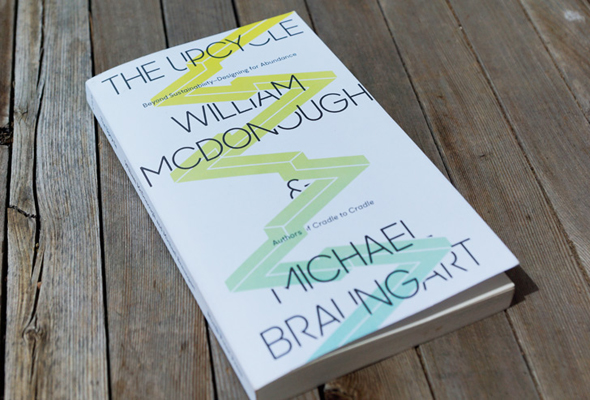
This past week, the authors William McDonough and Michael Braungart have released the awaited follow-up to their successful landmark book on sustainable design, Cradle to Cradle, which they wrote over ten years ago. Their new book, The Upcycle, takes their experience of putting sustainable ideas into practice in many different arenas, and translates that mindset into thinking about the future as we build and create new objects and technologies. The idea is that we don’t necessarily have to design to maintain the status quo, but we can design to actually improve our lives into the future.
Some of the key ideas are as simple as putting our various waste materials in their proper places, seeing our waste as potential material for reuse, thinking about the next steps in the present moment, and keeping beneficial intentions in mind while designing. While not exactly revolutionary in and of themselves, all of the little points make a whole that would make a great difference in what we work to create together.
Apr 23, 2013 | Categories: Random | Comments Off on The Upcycle
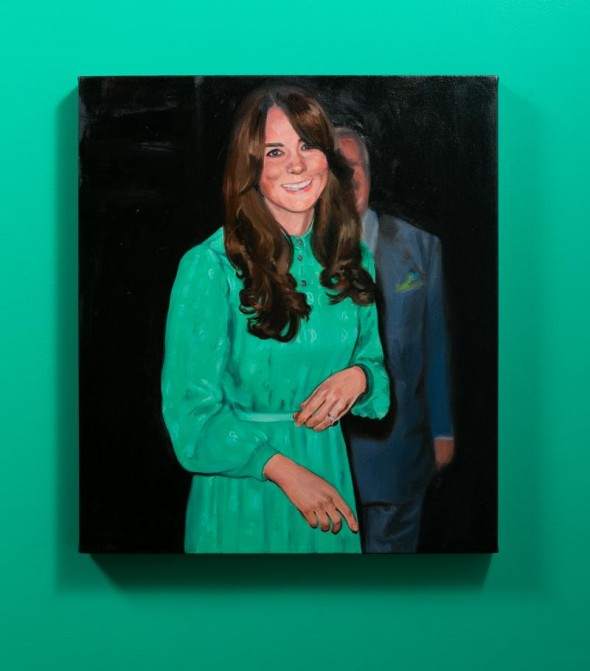
Meg Cranston, Emerald City (installation view), 2013, Courtesy of the artist and LA><ART, Los Angeles Photo Credit: Michael Underwood
MEG CRANSTON
EMERALD CITY
NADA NYC
Pier 36 | Basketball City | Booth 514
MAY 10 – 12, 2013
Fitzroy Gallery and Newman Popiashvili Gallery are pleased to announce Emerald City, a solo booth at NADA NYC with Los Angeles-based artist Meg Cranston.
High fashion beams industrial perfection and this year’s lodestar is emerald, the official hue of 2013. For her solo booth at NADA New York artist Meg Cranston explores the development of emerald as a global phenomenon. When in November of last year Kate Middleton strode onto a red carpet wearing an emerald pleated gown by designer Mulberry the Duchess and fashion icon ensured emerald was to become the ne plus ultra of design in the coming months. In Emerald City, Meg Cranston explores the historic yet always-evolving relationships between the beau monde and visual art with a new series of monochromes and painterly reflections on emerald.
About NADA: Founded in 2002, New Art Dealers Alliance (NADA) is a not-for-profit collective of professionals working with contemporary art. Their mission is to create an open flow of information, support, and collaboration within our field and to develop a stronger sense of community among our constituency. Through support and encouragement, they aim to facilitate strong and meaningful relationships between members working with new contemporary and emerging art; while enhancing the public’s interaction with contemporary art.
Apr 22, 2013 | Categories: Creative Culture, New York City | Comments Off on Meg Cranston: Emerald City at NADA Art Fair, NYC
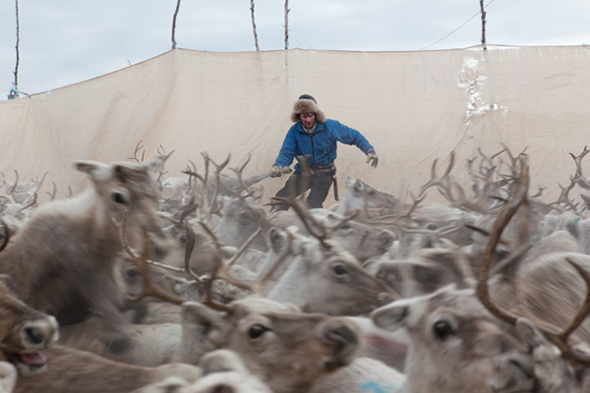
Erika Larsen knew she wanted to photograph the reindeer herders who live as nomads throughout northern Scandinavia and Russia, known as the Sámi. In order to truly immerse herself in their culture, Larsen initially worked as a housekeeper for a Sámi family. She cleaned bathrooms and learned to cook reindeer while earning the trust and confidence of a people she describes as living both “of the past” and also “of the now.”
It’s rare a photographer’s journey is as interesting as the output from his or her project. In Larsen’s case, her devotion to the Sámi people lead her back again and again, first as a stranger, second as a Fulbright scholar, and eventually as a student studying their Arctic language. Images from her book, Sámi-Walking with Reindeer, have been featured in National Geographic and NYTimes Lens blog. They are as haunting as they are intimate: women in traditional dresses smiling in the harsh winter glare, a reindeer carcass thrown neatly over a kitchen counter, a herd of docile reindeer pulled straight from folklore. Tonight, Friday, April 19th, the International Center of Photography in New York City is hosting her book signing from 6:00-7:30PM.
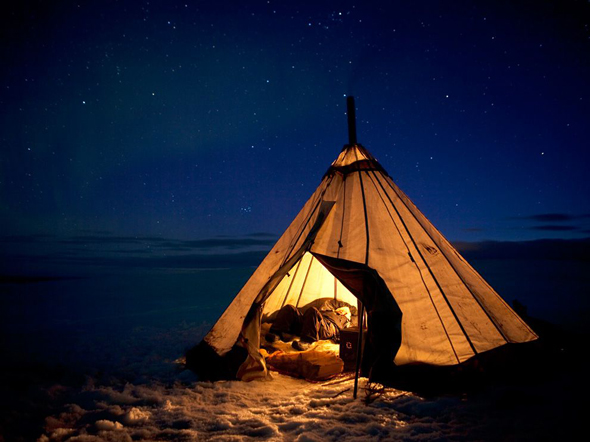
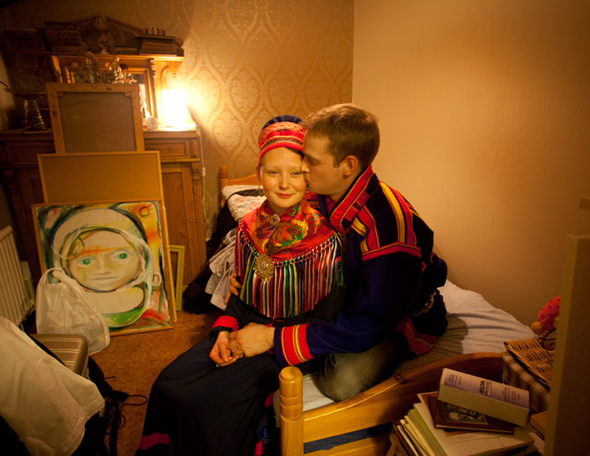
Erika Larsen’s Sami Book Signing
ICP Store, 1133 Avenue of the Americas
Friday, April 19, 6:00pm–7:30pm
Apr 19, 2013 | Categories: Creative Culture, New York City, Travel | Tags: photography | Comments Off on Sámi-Walking with Reindeer/ Photos by Erika Larsen
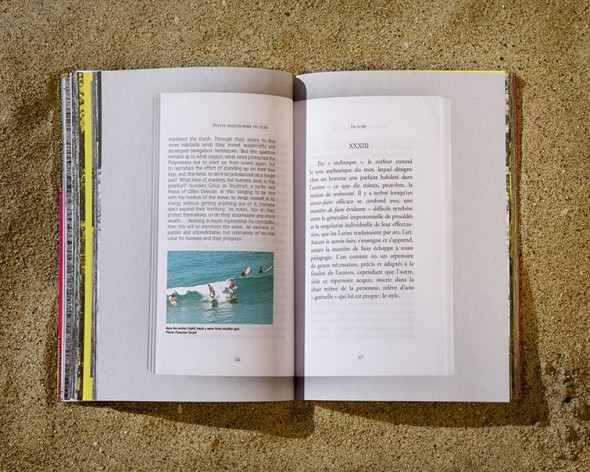
Check out Acid, a “surf-related publishing project for the curious-minded.”
Apr 18, 2013 | Categories: Creative Culture, Surfing | Comments Off on Acid Magazine

Surfing Magazine recently posted an interview and some uplifting figures from one local organization involved with Sandy relief: Waves for Water.
Waves For Water Hurricane Sandy Relief Effort Statistics
$1.1 MILLION in monetary donations
$3 MILLION worth of essential supplies
250,000 people helped
33,000 Volunteers
5250 Homes and businesses worked on
39 Grants given to families and businesses
18 Homes and businesses currently being restored
6 Relief centers still being supported by Waves For Water
Visit WavesforWater.org for more information on the relief effort’s impact.
Apr 17, 2013 | Categories: New York City | Comments Off on Waves For Water Relief Statistics
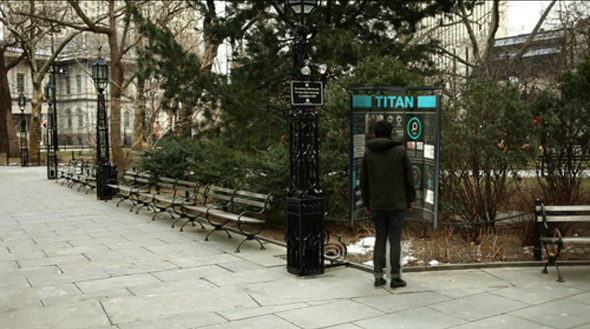
Following up on our prior post on the New Museum’s innovative use of New York City’s pay phones for their 1993 exhibit, the city is now actually attempting to decide what to do with the relics, rather than send them to the landfills. The mayor’s office has been holding a sustainable design competition for prototypes of ways to transform the booths into a useful and aesthetically appealing part of the city after the phone contracts run out in 2014.
The city has narrowed the field down to six and given awards to designers in various categories, including an audience pick selected via Facebook. Highlights include NYCLoop, which essentially turns the booth into a modern-day smartphone available for public use, and NYFi, which connects passersby to the Internet and displays advertising to offset costs. For a beneficial environmental and community impact, Windchimes uses the booths as a built-in local network to provide real-time information on the pollution, rainfall, and other data on the environment.
The implementation of any of these solutions may depend more on the succession of the Mayor’s office, but it’s a great way to start dreaming of what we can start to do with outdated technologies as we keep building new ones.
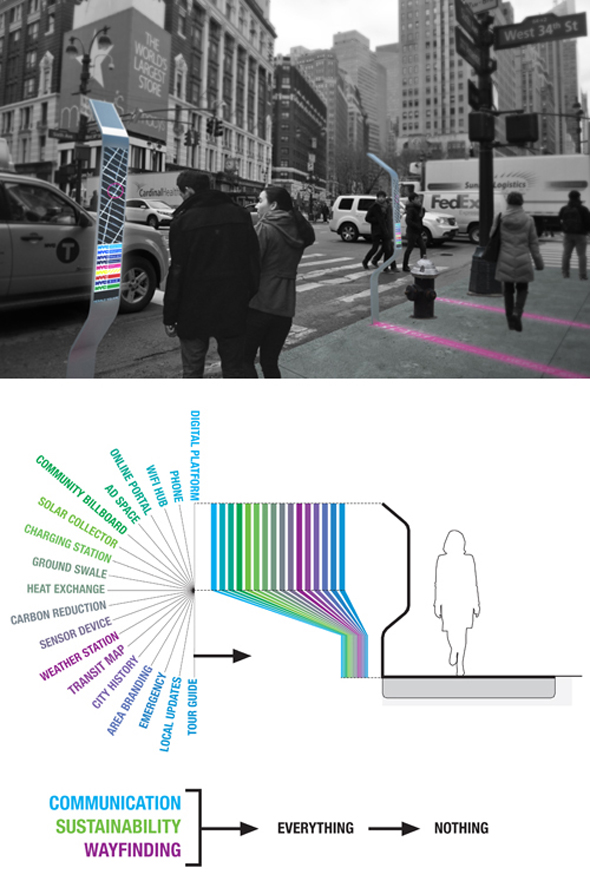
Apr 16, 2013 | Categories: Creative Culture, New York City, Sustainability | Comments Off on Repurposed Payphones
Every spring, Milan plays host to one of the world’s largest furniture fairs. Equal parts convention and party, the fair (called the Salone del Mobile) brings over 300,000 visitors to the city to wander, look, buy and party. Most of the official business is housed at the large convention center just outside the city center, where companies like Knoll build giant display booths to show their wares. Seeing all that world class design in one place is definitely worth the price of admission, but the real fun happens at the various installations tucked away inside courtyards and shops downtown. Below is taste of what there was to see at 2013’s Salone.
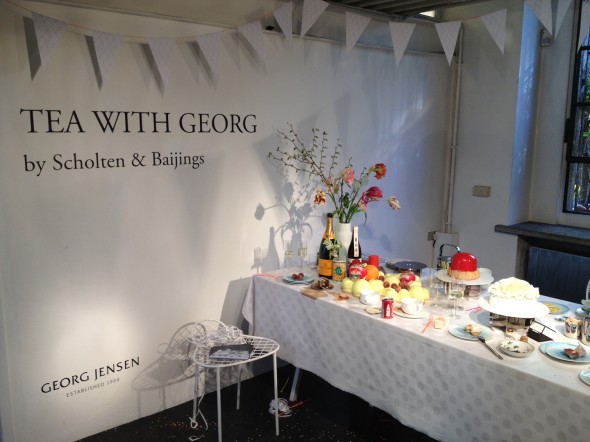
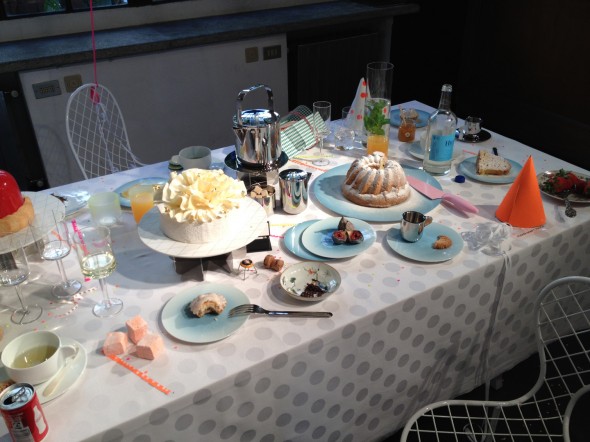
Detail of ceramics with ceramic "food."
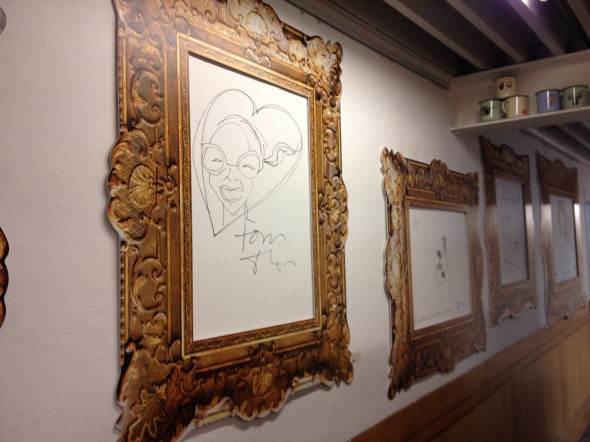
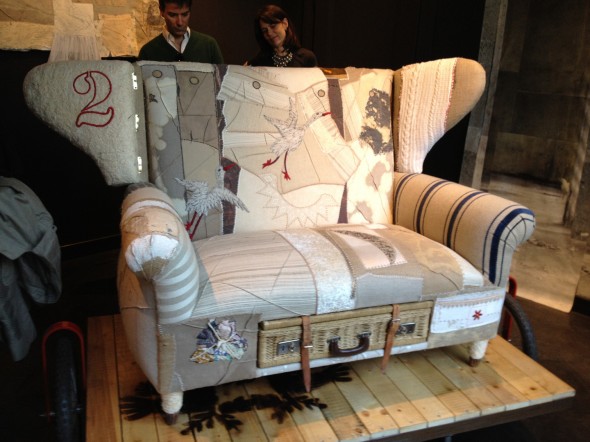
Handmade love seat
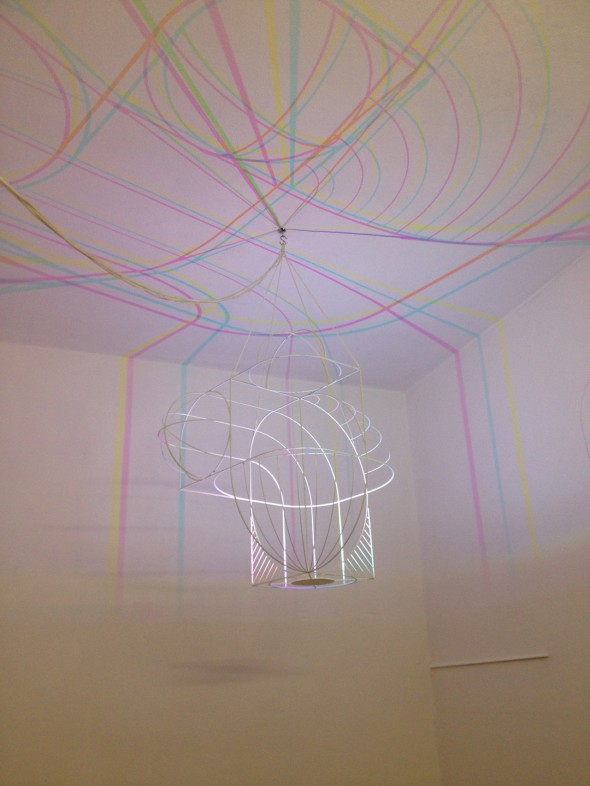
RGB light by Dennis Parren
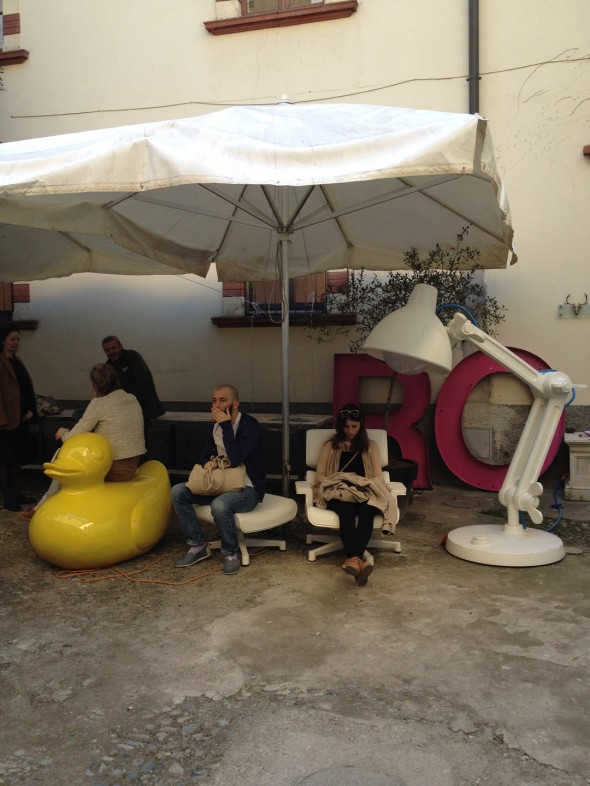
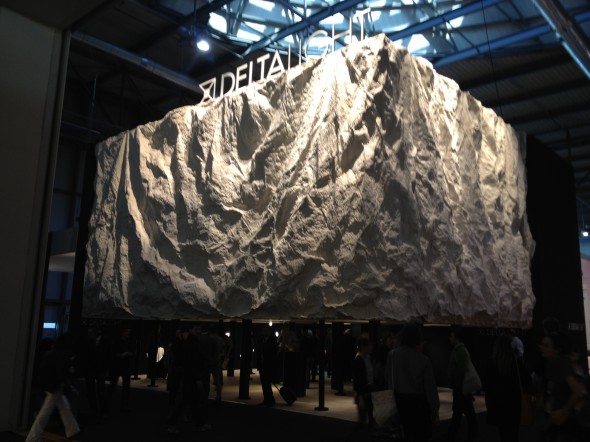
One of the massive stands in the main space
An interactive piece by an ECAL student
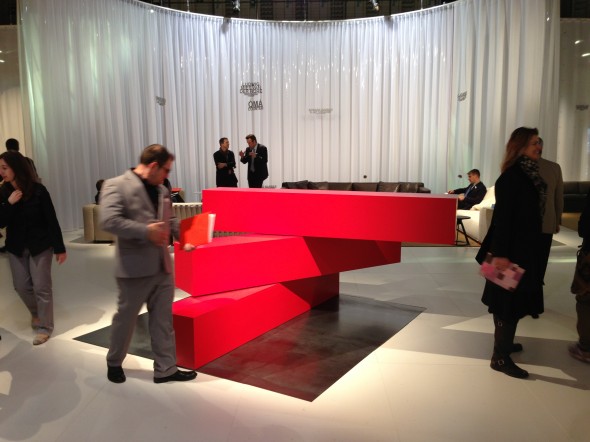
OMA x Knoll
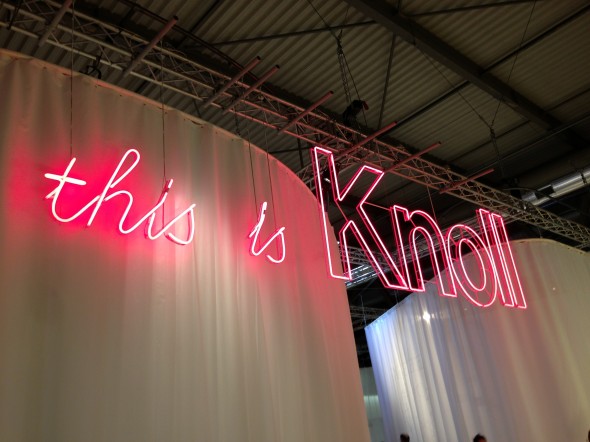
Entrance to Knoll booth
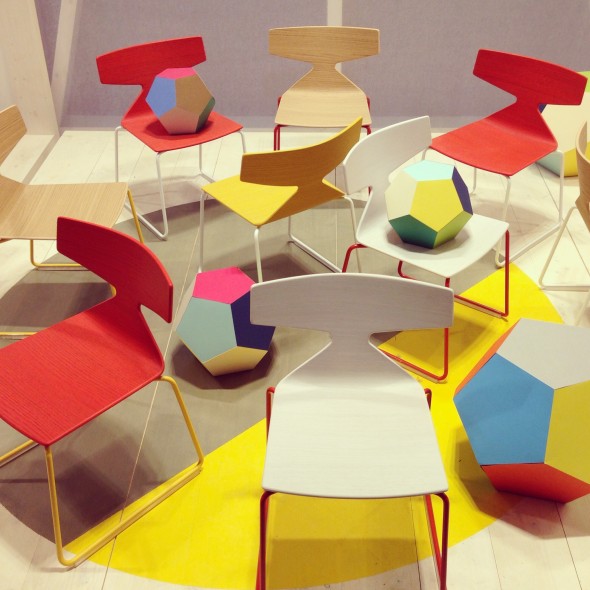
Arper chairs
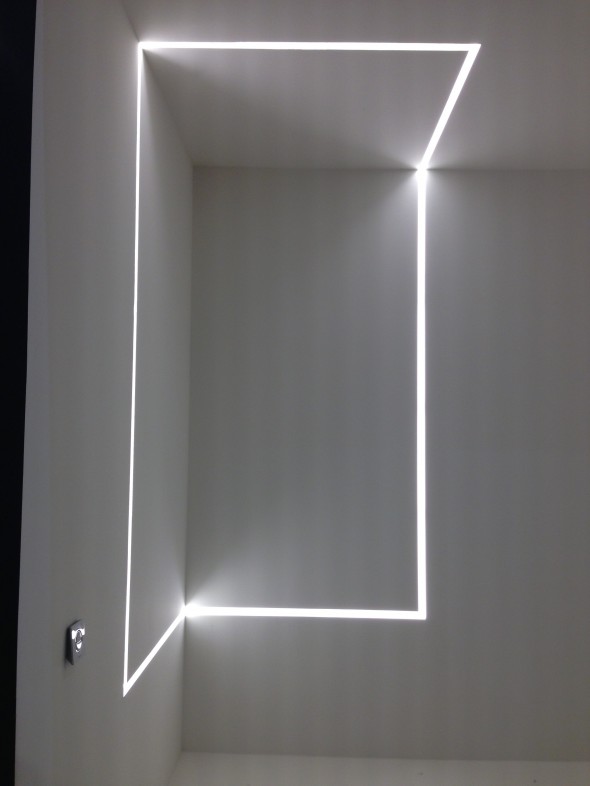
Light installation
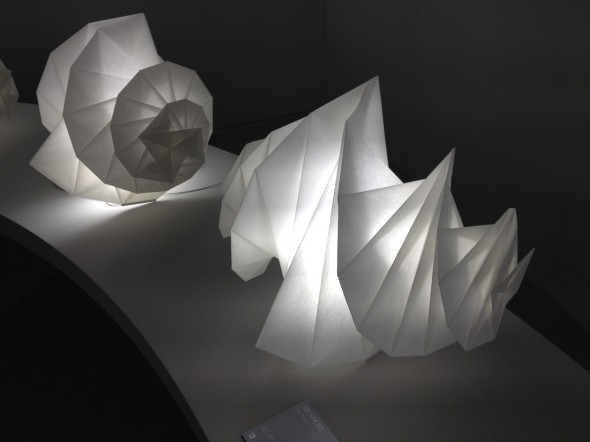
Lights at Artimide
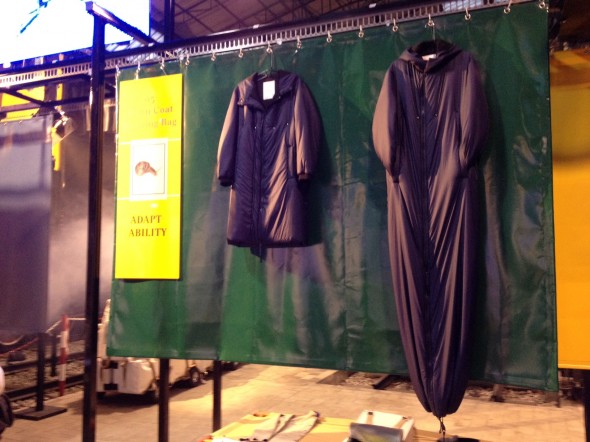
Tom Dixon x Adidas installation
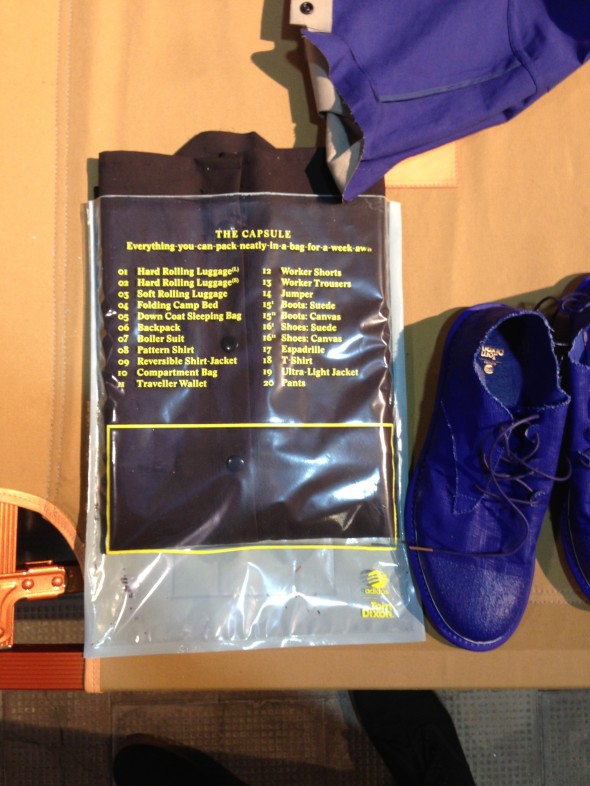
Detail, Tom Dixon x Adidas
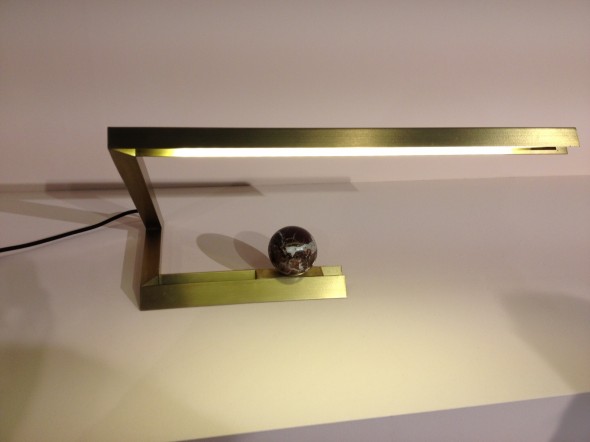
Lamp by Resident
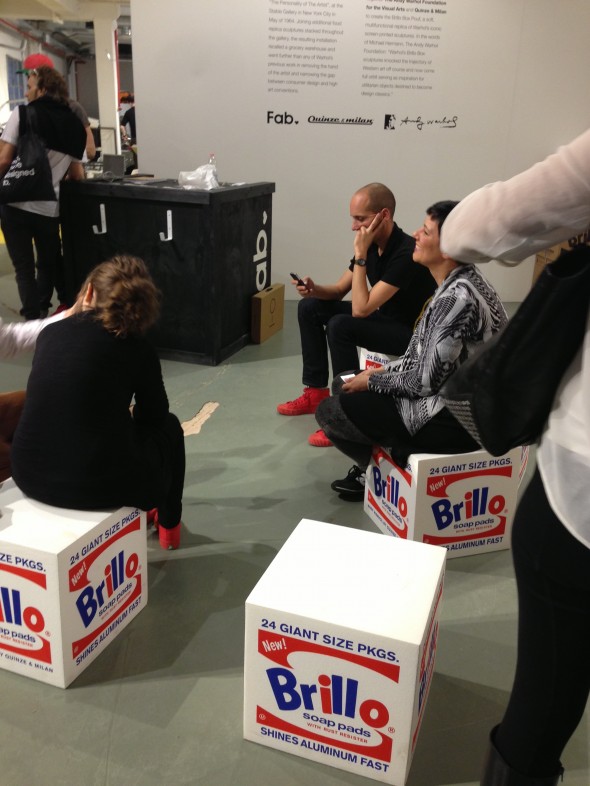
Foam seating. Warhol x Quinze Milan for FAB
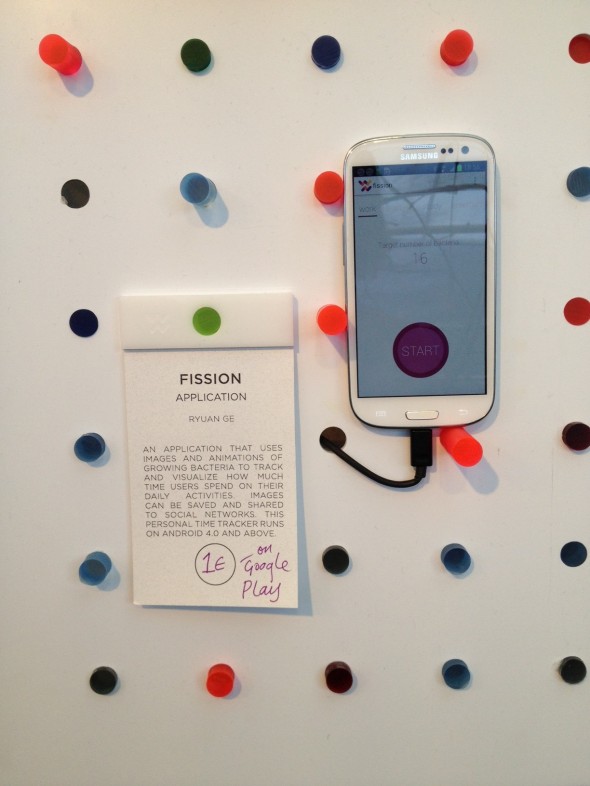
Interactive design installation (detail)
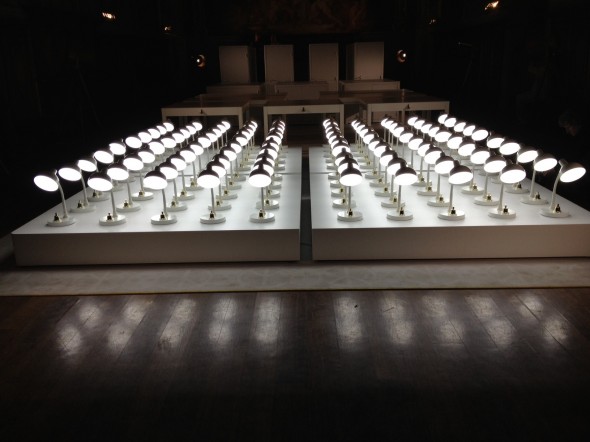
Lights
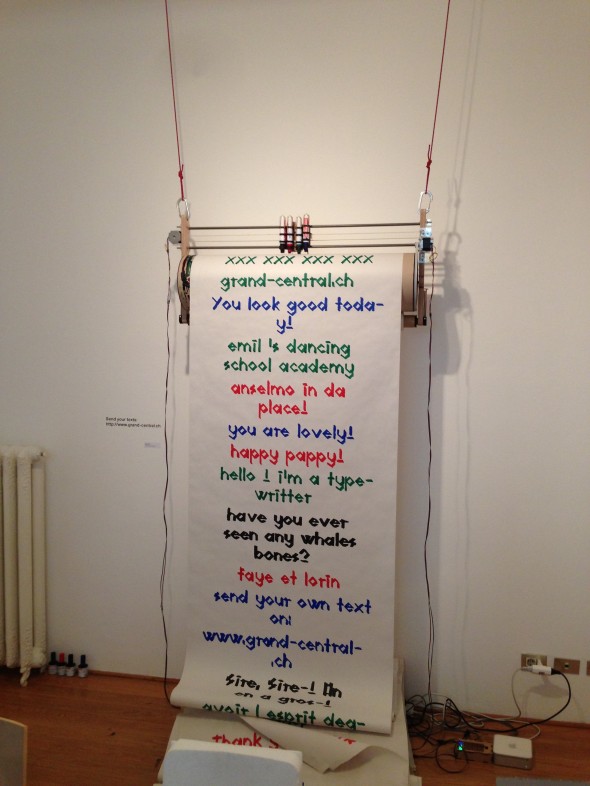
An interactive piece by an ECAL student
Apr 15, 2013 | Categories: Creative Culture, Travel | Comments Off on Scenes From Salone del Mobile, Milano
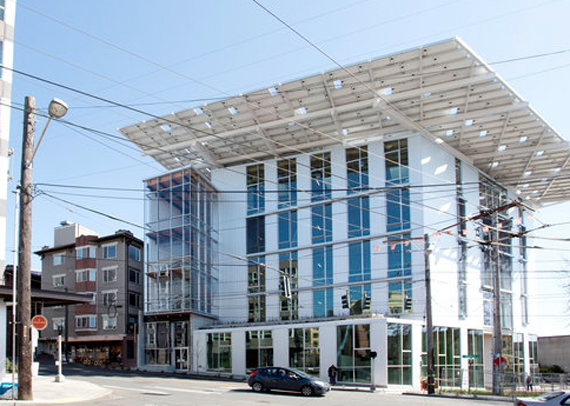
Just a year and a half since the Guardian announced the construction had begun, the Bullitt Center, Seattle’s carbon-neutral energy and net-zero water building has welcomed its first occupants for its grand opening on Earth Day, April 22nd. Located at the edge of Capitol Hill, the six-story building is estimated to function at 83 percent more efficient than the city’s average commercial site.How is it possible? All the water will be supplied by rainwater; collected, filtered and disinfected. Additionally, the project’s backers have instilled strict electricity usage budgets and detailed outlet meter readings so that management can pinpoint where energy is being used.
The New York Times published an article earlier this week outlining details on how the Bullitt Center evolved from an idea to reality and how its creators hope their strategy and building plans may act as a model for how we can live responsibly within beautiful sunlit rooms. In the meanwhile, the building must undergo a year-long process of certification called the Living Building Challenge, to determine if it is in fact self-sustaining. Should it pass all regulations, it will be the largest of four qualifying buildings in the United States. Check out the NYT slideshow here and follow up to see how the Bullit Center occupants respond to composting toilets, lack of onsite parking, and the gorgeous views of Puget Sound.
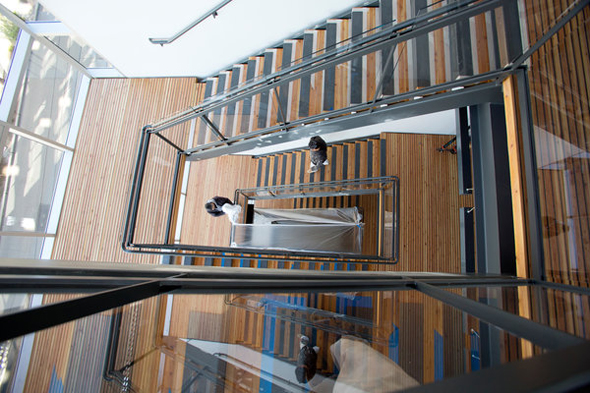
Apr 12, 2013 | Categories: Sustainability | Comments Off on Seattle’s Bullitt Center


































